Contrary to popular belief, uterine fibroids are quite common among women. In fact, around 70 percent of reproductive-age women are affected. Imagine all the other cases which have either not been diagnosed or misdiagnosed. Given the evolution of medicinal technologies, an increasing number of healthcare providers are able to accurately diagnose the condition.
Yet, many women are still unsure of the symptoms and what causes uterine fibroids. To be sure, they can be painful and trigger a host of other issues within the uterus.
As the name implies, the fibroid is located in the uterus and can range in size from seedlings to large masses that have the ability to expand the uterus. In some cases, uterine fibroids have become enlarged enough that they cause the uterus to expand as much as that of a woman who was 16 weeks pregnant. In addition, uterine fibroids are also known as myomas or leiomyomas which are non-cancerous tumors.
Even with treatments in western medicine, the condition can be lifelong. If the fibroids are tiny, then, doctors will often opt not to treat them. The problem is even if fibroids start out small, they can always get larger. Plus, fibroids can affect a woman’s fertility.
In rare scenarios, uterine fibroids can be cancerous. Still, you don’t have to suffer at the whim of your doctor. You can help to treat and prevent uterine fibroids with polyphenols and herbs for longevity. Keep reading to learn more.
Who Is at Risk of Getting Fibroids?
There are many factors that induce the manifestation of fibroids. One such factor is age. As women age, fibroids can become more common – especially during the ages of the 30s and 40s. It isn’t until menopause that fibroids start to shrink. Yet, if there is pain associated with uterine fibroids, many women do not want to wait until menopause for some relief. At the same time, menopause does not cure uterine fibroids.

Another factor is your family history. If a woman’s mother had uterine fibroids, then she has a three times’ higher risk of contracting uterine fibroids. Moreover, obese women are at a greater risk – sometimes two or three times higher than others. And, your eating habits can certainly affect the proliferation of uterine fibroids. A diet infused with polyphenols, lots of green vegetables, and longevity herbs is highly recommended for preventing and treating uterine fibroids.
In addition, a pilot randomized and controlled clinical study sought to determine the results of treating uterine fibroids with green tea extract. In this polyphenol study, 39 women – between the ages of 18-50 – were used for the study. The results were hopeful. For the women who were given 800 mg of green tea extract per day, they experienced a 32.6 percent reduction in the size of their uterine fibroids and severity of their symptoms.
Since there isn’t a standard treatment for uterine fibroids, the combination of polyphenols with longevity herbs appears to provide a lot of promise. This is especially true for those who want to improve their overall quality of life.
The Symptoms Associated with Uterine Fibroids
The issue of uterine fibroids is a huge one because the symptoms affect the quality of life for millions of women. In very few instances, they often do not have any symptoms. In most other cases, uterine fibroids often cause many painful and irritating issues.
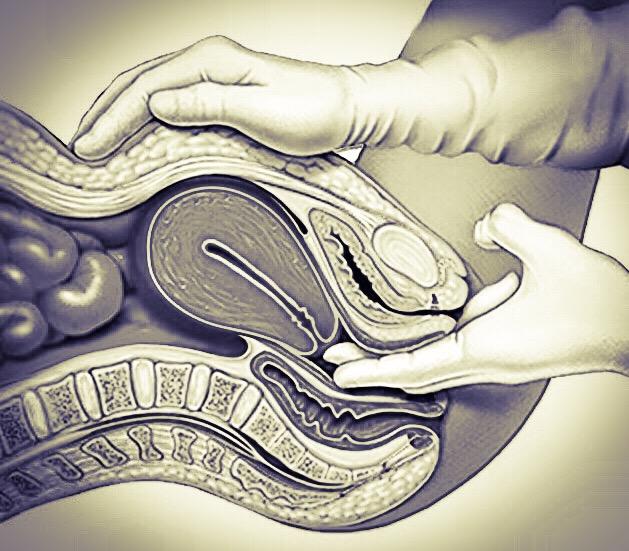
One major issue is the experience of having heavy, long, and painful periods. For most women, working while on their period isn’t a problem. But, for women with uterine fibroids which cause painful periods, it can be a nightmarish experience requiring time off from work and time to get through it.
If you have to miss work every month due to painful and heavy periods, then it’s high time to reassess your intake of polyphenols and longevity herbs. Also, uterine fibroids can cause pain during intercourse and frequent urination. If you experience frequent urination, it can be very difficult to get a good night’s sleep or to perform at top capacity because you need to take constant relief breaks.
Uterine fibroids can also cause rectum discomfort. If the uterine fibroid is large, it can also abnormally increase the size of your abdomen.
Even if fibroids are surgically removed, others can grow in their place. Plus, fibroids can cause bleeding between periods, infertility, and even a miscarriage. If fibroids are present during pregnancy, they can cause a preterm birth or even a breech birth. In a horrific scenario, an unusually large fibroid can block the opening of a woman’s uterus which then prevents the baby from getting through.
Now, there are surgical treatments. To illustrate, a myomectomy leaves the uterus intact while removing the fibroids. Yet, others can grow afterwards and their is a huge risk of infection and bleeding.
Another surgical option is endometrial ablation. Nonetheless, this procedure destroys the uterus lining and there is also a great risk of infection and bleeding. Not to mention, surgery can be quite expensive and painful. The best method for treating uterine fibroid growth is through natural methods.
What Are Polyphenols?
There are still many misconceptions around polyphenols. To start, polyphenols consist of over 500 phytochemicals that naturally occur as micronutrients found in plants. When you eat plants with polyphenols, your body absorbs the health-inducing micronutrients. Many popular, and highly recommended, sources of polyphenols include:
- Red wine
- Green tea
- Fruits
- Vegetables
- Red wine
Many research studies have shown polyphenols to reduce the risks of high blood pressure, cancer, or diabetes. And more recently, the polyphenols found in green tea have shown success in reducing the size of uterine fibroids found in affected women.
In essence, polyphenols are also a type of antioxidant which prevents cellular damage caused by free radicals. Polyphenols are also anti-inflammatory which is quite necessary for the reduction of enlarged uterine fibroids. Furthermore, longevity herbs have very high levels of polyphenols. So, you can’t go wrong by consuming the right mix of herbs.
Consume Natural Herbs
Since surgery isn’t a cure, and there isn’t a one-size-fits-all treatment for uterine fibroids – many women are turning to longevity herbs to help shrink and/or prevent uterine fibroids. Herbs can help to break down, shrink, and/or prevent uterine fibroids in your system. They can also help to prevent excessive bleeding, such as bleeding during and between periods.
Still, you want to consume a concentrated variety of herbs designed specifically for treating the effects of and causes of uterine fibroids. The last thing you want to do is to take 30 pills per day. In fact, here is a list of 25 longevity herbs for treating uterine fibroids:
- Cimicifuga Racemosa extract
(https://www.hindawi.com/journals/ecam/2014/717686/abs/)
- Black Cohosh
(https://journals.lww.com/hnpjournal/Citation/2014/11000/Efficacy_of_a_Standardized_Isopropanolic_Black.9.aspx)
- Vitex Doniana
(https://www.researchgate.net/profile/Higenyi_James/publication/325319488_Effect_of_crude_extract_of_Vitex_doniana_on_monosodium_glutamate_induced_uterine_fibroids_in_wistar_albino_rats/links/5b056488aca2725783d87e1e/Effect-of-crude-extract-of-Vitex-doniana-on-monosodium-glutamate-induced-uterine-fibroids-in-wistar-albino-rats.pdf)
- Strawberry extract
(https://www.ncbi.nlm.nih.gov/pmc/articles/PMC5410328/)
- Curcumin
(https://www.tandfonline.com/doi/abs/10.3109/09513590.2010.507287)
- Hibiscus protocatechuic acid
(https://synapse.koreamed.org/DOIx.php?id=10.3802/kjgo.2008.19.1.48)
- Resveratrol
(https://www.mdpi.com/2076-3921/8/4/99)
- Orthosiphon stamineus extract
(https://www.ncbi.nlm.nih.gov/pmc/articles/PMC6291024/)
- Romina
(https://onlinelibrary.wiley.com/doi/abs/10.1002/jcp.27524)
- Scutellaria barbata D. Don
(http://citeseerx.ist.psu.edu/viewdoc/download?doi=10.1.1.603.6080&rep=rep1&type=pdf)
- Actaea racemosa
(https://pdfs.semanticscholar.org/6807/f6eeb94e160e1212313c6dfd102eb5d44b27.pdf)
- Green tea extract
(https://www.sciencedirect.com/science/article/abs/pii/S1734114016302973)
- Vitex
- False unicorn root
- Blue cohosh
- Cramp bark
- Siberian ginseng
- Motherwort
- Lady’s mantle
- Marigold
- Cleavers
- Echinacea
- Licorice root
- Burdock root
(Vitex to Burdock root – https://www.natural-health-for-fertility.com/herbs-for-fibroids.html)
- Rhodiola rosea
(https://onlinelibrary.wiley.com/doi/abs/10.1002/mc.20780)
Try this tonic as well:
Burdock root (1 tsp)
Cramp Bark (1tsp)
Motherwort (1tsp)
Vitex (1 tsp)
Lady’s mantle (1 tsp)
Wild Yam (1tsp)
Cleaves leaves (1/2 tsp)
Marigold (1/2 tsp)
In Conclusion
As you can see, surgery isn’t the only way out of experiencing painful uterine fibroids. There is another helpful option available to you: polyphenols and longevity herbs.




















































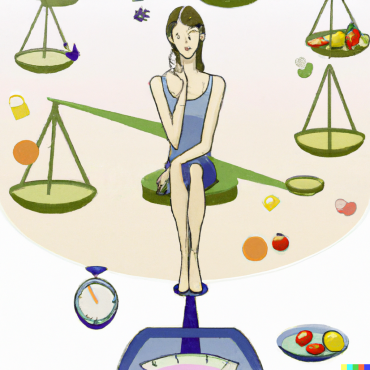
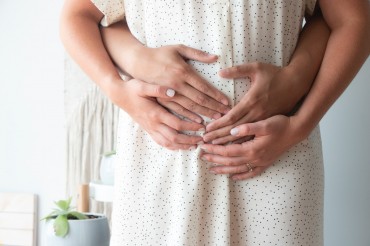
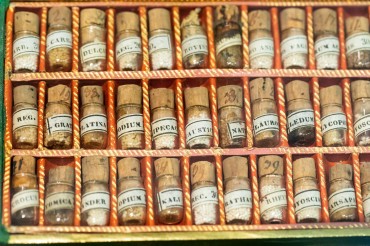
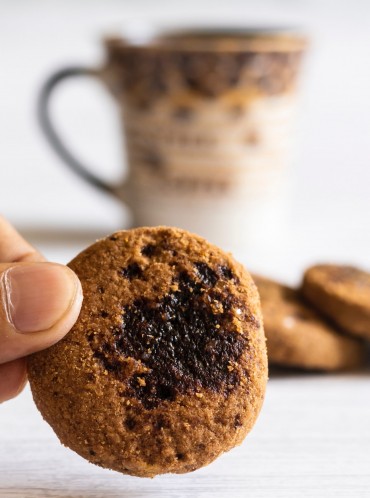

Comments